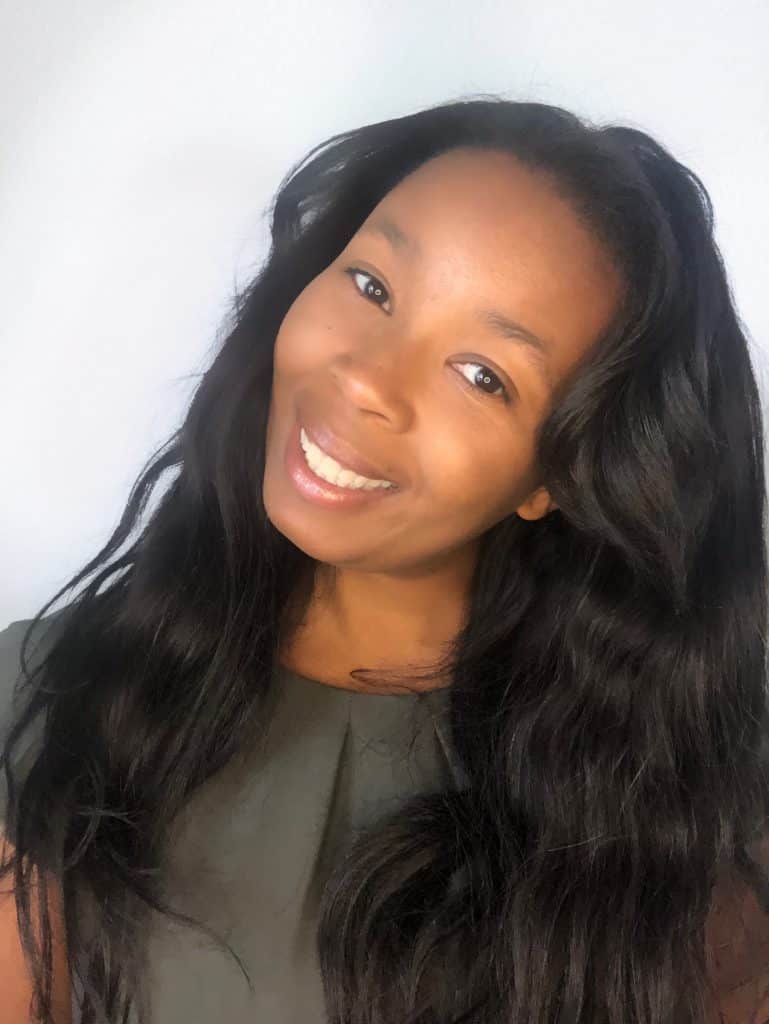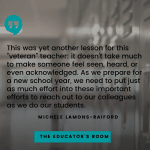Overview:
Mentoring and coaching are critical components in the professional development of special education teachers
“[O]ne of the most vital ways we sustain ourselves is by building communities of resistance, places where we know we are not alone.”
-bell hooks
Isolation island seems to be the name of the game when you enter into the special education profession. It’s often a sink or swim mentality which results in teacher retention challenges and poor outcomes for students.
With National Mentoring Month upon us, the Biden administration is pairing children with mentors who can help them navigate these complexities, open up doors of opportunity, and give them the additional support they may need to excel in school and in their communities. We must extend this discussion to the impact of mentoring on special education teachers and students who receive special education services.
As a Teacher of the Deaf, I know the value of mentorship and coaching for special education teachers. Mentoring and coaching are critical components in the professional development of special education teachers. Research has shown that mentoring and coaching can positively impact teacher efficacy, job satisfaction, and student outcomes. Mentoring and coaching are also ways to build communities so that special education teachers aren’t alone.
Meaningful mentoring provided by an expert in a specialized area of the mentee can play a crucial role in supporting the growth and development of special education teachers.
When I was in my first year of teaching at the high school level, supporting students who were deaf/blind, I was assigned a mentor. However, my mentor had limited knowledge in the area. While she was able to help me understand areas like district policy, she could not offer support in identifying evidence-based practices for my students.
By year two of being a special education teacher, I knew I was going to quit if something didn’t change. I was transferred from teaching at a high school to an elementary school and given a roster that a more seasoned teacher had created. My students had various abilities and dual eligibilities with limited support. I felt alone when I needed additional support because my peers were too busy with their own classrooms. Eventually, someone was “voluntold” to support me, but it was the same teacher who created my roster.
I needed support to survive, so I began a Ph.D. program and started to build a community of fellow special education teachers of color. Through that process, I identified my mentor and found that I was more connected. I could utilize the network and my mentor as thought partners when I had challenges or wanted to implement something new.
I remember one time I was trying to figure out how to structure a classroom schedule that met my students’ diverse needs. I had students who received minutes in a different classroom with an assigned paraprofessional. I wanted to make sure they didn’t miss vital instruction from me. At the same time, I needed to set up small groups and 1:1 instruction while my paraprofessional was out of the classroom. One teacher in my network sent me her schedule and talked me through how she structured it. As a result, my confidence improved, and my students made gains. As a result, my confidence improved and my students made gains. Instead of quitting, I remained in the field for 8 years. Not only can effective mentoring increase outcomes for students, but it can also increase teacher retention within the special education field. Having mentorship and community increases the likelihood of special education teachers remaining in the field, which can help to address the shortage of special education teachers.
As a result of my experience and knowledge that there is a need for more coaching and mentorship for special education teachers, I created Coach In A Pocket coaching that includes community and mentorship. It is an app and web-based platform for special education teachers in development that includes community, group and 1:1 coaching options, and a resource library developed by special education teachers. It’s an opportunity for special education teachers in diverse areas of special education to come together and receive coaching, mentorship, and commune to grow in practice.
Mentoring and coaching are essential for the professional development and retention of special education teachers. Curating the space for meaningful and relevant coaching and mentoring positively impacts the teaching and learning outcomes for both special education teachers and students. Special education teachers – and their students – deserve effective mentoring. Amid poor outcomes for students who receive special education services and a growing shortage of special education teachers, we cannot afford to wait.

Felicia Rutledge, Ph.D., serves as a Regional Multi-Tiered System of Supports Coordinator at the University of Nevada, Reno, supporting educators with the implementation of tiered supports. She is a special education consultant and coach, a Teach Plus Nevada Senior Policy Fellow and a Nevada Succeeds InspirEd Global Fellowship Alumna.

Editor’s Note: If you enjoyed this article, please become a Patreon supporter by clicking here.




